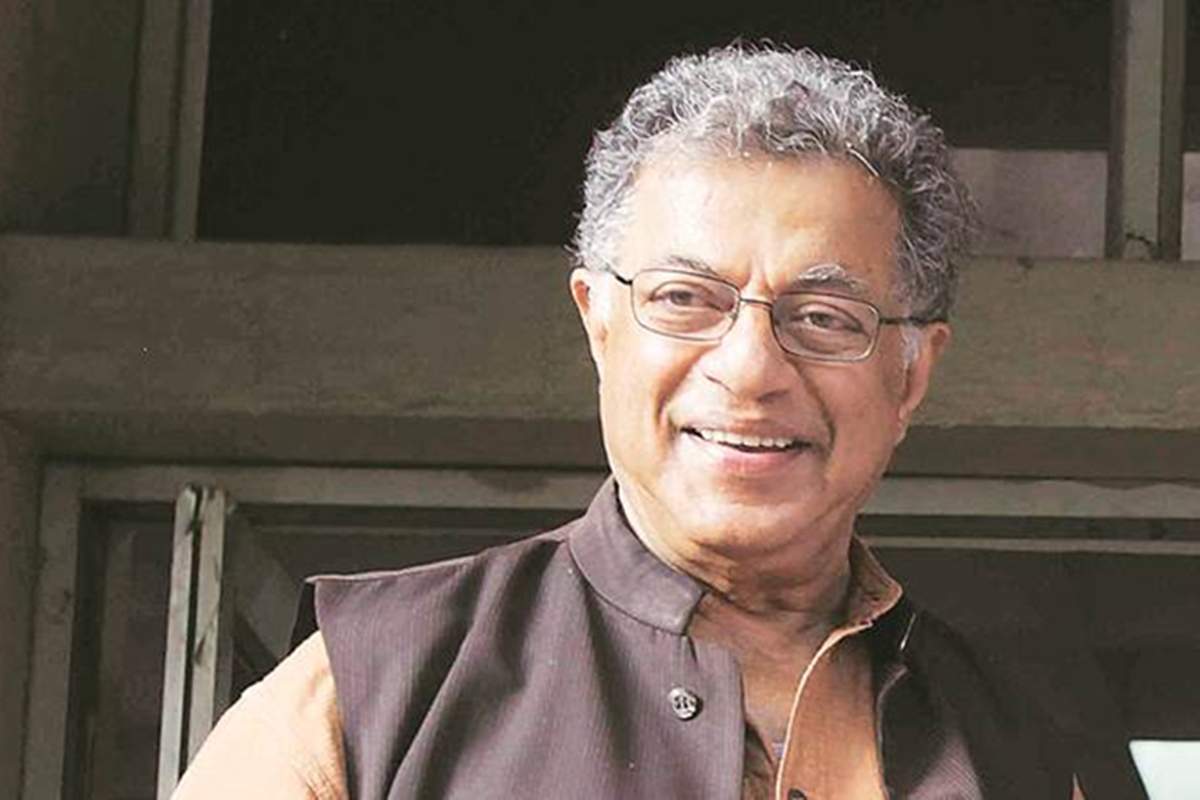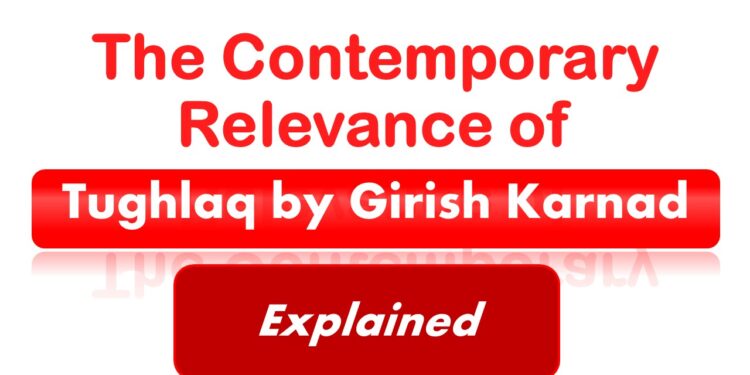The Contemporary Relevance of Tughlaq by Girish Karnad
The Contemporary Relevance of Tughlaq by Girish Karnad-Tughlaq a 1960s work by Girish Karnad, is still a moving examination of politics, power, and the difficulties of leadership. Despite being set in the Delhi Sultanate of the fourteenth century, the play’s themes and characters have a lot in common with modern political dynamics.
Historical Context In Tughlaq :
The events of “Tughlaq” take place during the turbulent rule of Muhammad bin Tughlaq, a 14th-century monarch renowned for his audacious yet unpredictable policies. Karnad makes observations about the problems of governance, the misuse of power, and the fallout from authoritarian rule using this historical backdrop. The play, taken as a whole, reflects the political climate of its day, but its themes are timeless and can be applied to any political setting at any point in history.
The Tyranny of Absolute Power:
The Contemporary Relevance of Tughlaq by Girish Karnad-A primary motif in “Tughlaq” is the despotism of total authority. Tughlaq is portrayed in the play as a wise-but-misguided king who, in his quest for the perfect state, turns authoritarian and loses touch with the realities that his subjects must deal with. This theme is seen in contemporary political situations when vision-driven leaders sometimes fail to consider the real-world effects of their choices, which can have unexpected consequences and leave the general public unhappy.
The Complexity of Leadership:
The way that Karnad portrayed Tughlaq explores the intricacies of leadership. Tughlaq is caught between the harsh realities of governance and his idealistic hopes for a just and cohesive state. This internal struggle is representative of the difficulties faced by modern leaders who have to strike a balance between their aspirational goals and the realities of overseeing diverse societies. The play invites discussion of the moral conundrums that face leaders and the expectations that are placed on them.
Political Expediency and Betrayal:
“Tughlaq” also explores the theme of political expediency and betrayal. The play’s characters navigate a treacherous political landscape where alliances are formed and broken, and loyalty is a scarce commodity. This mirrors contemporary politics, where shifting alliances, backdoor deals, and betrayals are not uncommon. The play’s portrayal of political maneuvering serves as a cautionary tale about the consequences of prioritizing personal gain over the welfare of the state.

Religious Tensions and Identity Politics:
The historical context of “Tughlaq” includes religious tensions between Hindus and Muslims. Karnad skillfully uses this backdrop to comment on identity politics, a theme that continues to be relevant today. The play prompts reflection on how leaders exploit religious or ethnic differences for political gain, fostering division and animosity. In the contemporary world, where identity politics often shapes political narratives, “Tughlaq” serves as a reminder of the dangers of such manipulation.
Also Read-
- Bring out the silver lining in the story Birthday
- Do any of the characters surprise you at any stage in the novel Tamas
- Which characters do you like the most in the novel Samskara
The Role of the Intellectual:
The character of the Sufi saint in “Tughlaq” represents the intellectual and moral conscience of the society. The play raises questions about the responsibilities of intellectuals and the role they play in shaping public opinion. This theme is particularly relevant today, as intellectuals grapple with their role in times of political upheaval, where truth and dissent are often under threat.
Conclusion
“Tughlaq” by Girish Karnad is a classic work of literature that goes beyond its historical setting to provide important insights into the difficulties of leadership and the fallout from unbridled power. The play’s themes—authoritarianism, expediency in politics, tensions between religions, and the role of intellectuals—resonate powerfully in modern settings. Karnad invites contemplation on the difficulties faced by leaders who attempt to strike a balance between their lofty goals and the realities of governance through the character of Tughlaq. “Tughlaq” also acts as a warning against identity politics and the exploitation of racial or religious prejudice for political advantage.
The Contemporary Relevance of Tughlaq by Girish Karnad-As societies navigate the complexities of the present, “Tughlaq” remains a relevant and thought-provoking work that encourages dialogue on the ethical responsibilities of leaders and the enduring struggle for justice and morality. Its exploration of betrayal, shifting alliances, and the moral dilemmas faced by individuals in positions of power serves as a mirror to contemporary political landscapes, urging us to learn from history and strive for more just and equitable societies.
FAQ:
1. Is “Tughlaq” only relevant to Indian history?
While the play is set in the historical context of the Delhi Sultanate, its themes are universal and can be applied to various political and societal contexts globally. The exploration of power, governance, and moral dilemmas is not limited to a specific historical or cultural setting.
2. How does “Tughlaq” address identity politics?
The play explores religious tensions between Hindus and Muslims during the 14th century, using this backdrop to comment on identity politics. Karnad portrays the dangers of exploiting religious or ethnic differences for political gain, a theme that remains relevant in contemporary discussions on identity politics.
3. What is the role of intellectuals in “Tughlaq”?
The character of the Sufi saint in the play represents the intellectual and moral conscience of the society. “Tughlaq” raises questions about the responsibilities of intellectuals and their role in shaping public opinion, a theme that prompts reflection on the contemporary role of intellectuals in times of political upheaval.
4. How does the play comment on the complexities of leadership?
The central character, Tughlaq, grapples with the complexities of leadership, torn between idealistic aspirations for a just state and the practical challenges of governance. The play explores the moral dilemmas faced by leaders and the consequences of unchecked power, offering insights into the challenges that leaders continue to face in the contemporary world.
5. What makes “Tughlaq” a timeless piece of literature?
The timeless nature of “Tughlaq” lies in its ability to address universal themes such as power, governance, morality, and the human condition. Its exploration of these enduring aspects of the human experience allows the play to remain relevant across different historical and cultural contexts.













